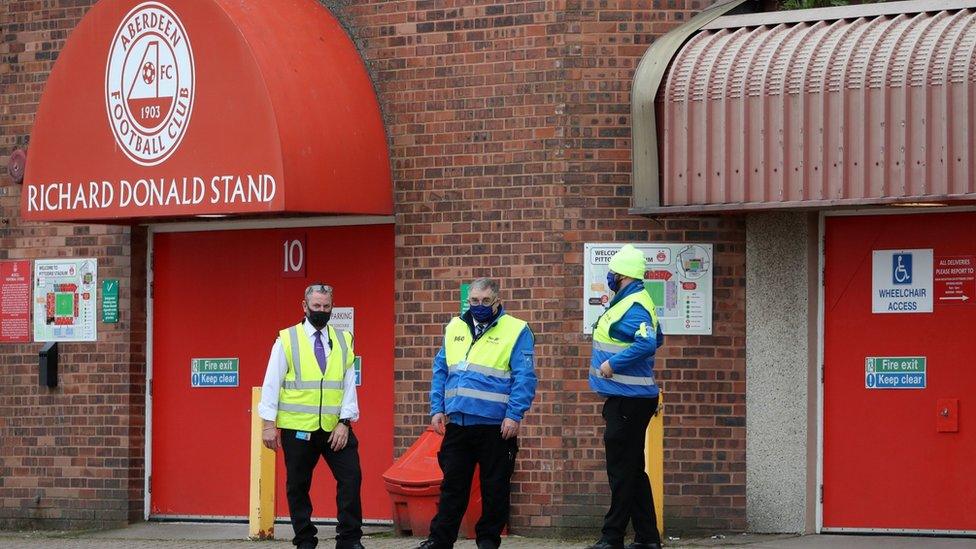Coronavirus: Tighter rules on visors, masks and contacts
- Published
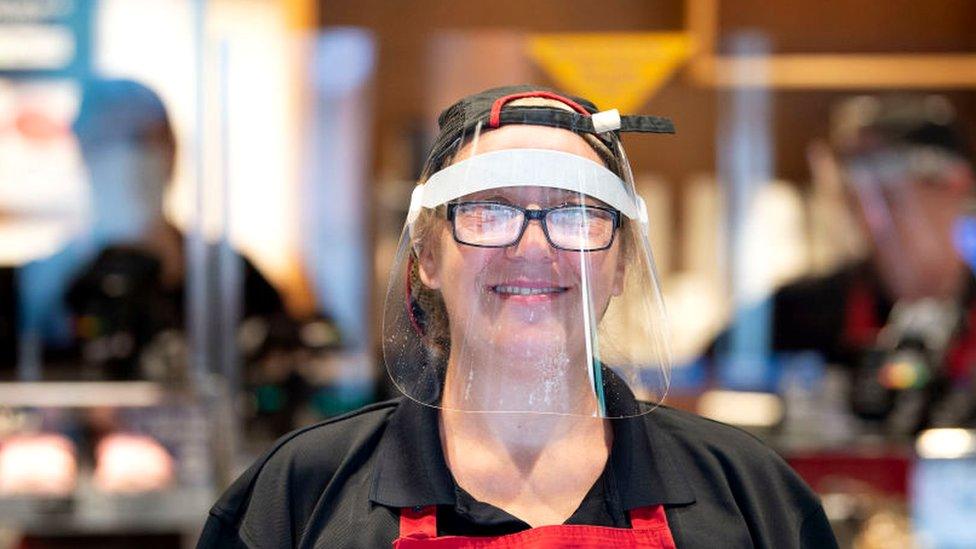
A visor will not be enough - now a face covering will also have to be worn
Nicola Sturgeon has tightened up rules designed to prevent the spread of coronavirus.
During Friday's briefing she increased the list of places where face coverings must be worn to include libraries, museums and places of worship
Amid a growing cluster of cases in Aberdeen, she also announced a stricter set of rules for the hospitality trade.
The recording of contact details for customers will become mandatory rather than advisory.
The first minister also issued a warning over the use of visors, saying they should not be a substitute for a more closely-worn face covering.
The number of confirmed coronavirus cases in Scotland rose by 43 in the past 24 hours, and the number linked to a cluster in Aberdeen now stands at 101.
The new guidance for the hospitality sector will come into effect in a week's time to allow businesses to prepare but other changes begin this weekend.
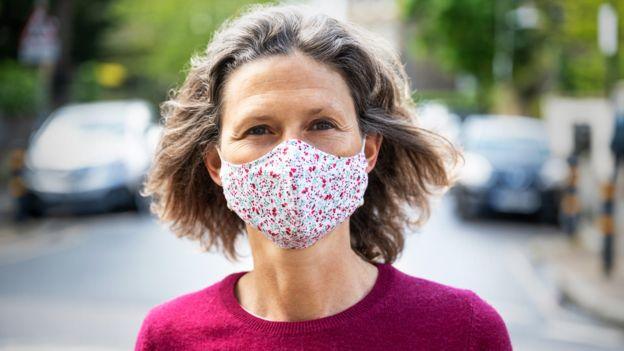
Face coverings have to be worn in more places from Saturday including places of worship and libraries
Face coverings
From Saturday, face coverings will have to be worn in libraries, museums and places of worship in Scotland.
Ms Sturgeon said the decision to expand the list of places where face coverings must be worn was being taken as "risks are heightened" as the country comes out of lockdown.
Other places where a mask must be worn include: takeaway restaurants, estate agents and beauty salons, aquariums, indoor zoos or visitor farms, and any other indoor tourist, heritage or cultural site. You will also need them in banks, building societies, credit unions, cinemas, community centres and post offices.
She also said that based on scientific advice the Scottish government is not convinced that face visors provide sufficient protection.
As a result, from Saturday 8 August, if a visor is worn it must be accompanied by another type of face covering.
Face coverings are already mandatory in shops and on public transport.
The first minister said she was very satisfied that the vast majority of people were complying with those requirements.
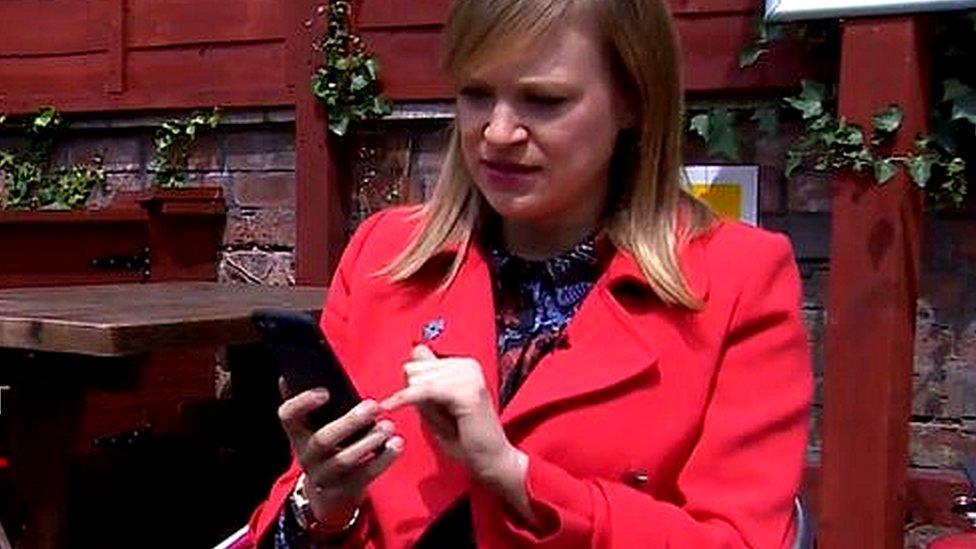
Hospitality businesses will by law have to collect contact details of customers
Customer details
From next Friday, 14 August, it will be mandatory for pubs and other venues to collect customer details.
The requirement will be placed on a "statutory footing" meaning it is backed up by law. The details will help ensure Test and Protect can function as effectively as possible.
Police Scotland will enforce the measures if necessary.
Ms Sturgeon said a common factor in the rise in coronavirus outbreaks across the world was a link to hospitality.
She said settings like pubs and restaurants were particularly susceptible to the virus.
While she said the majority of hospitality businesses had complied with coronavirus measures she said "it is clear there are some businesses where that has not been the case".
Businesses have a week to get organised but the first minister said they should not wait until then to comply.
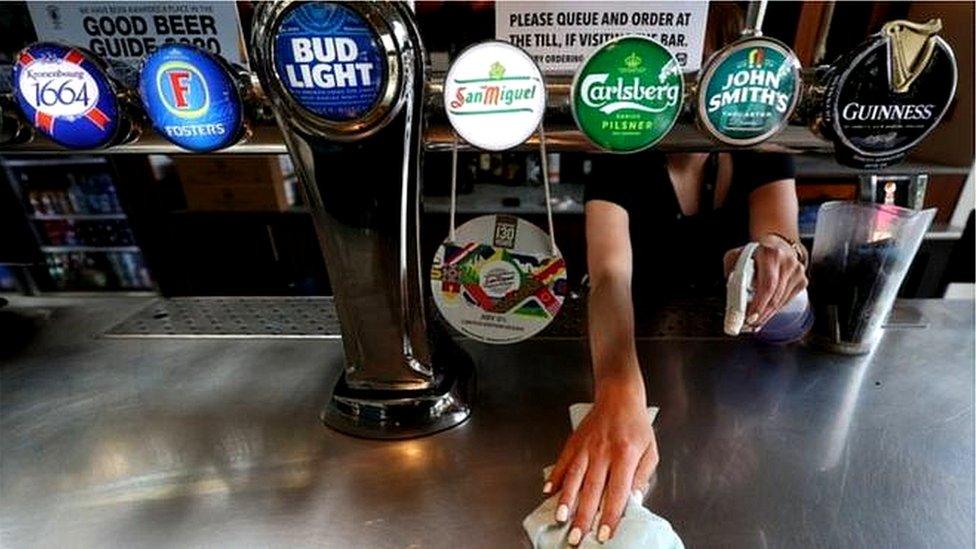
Customers will not be allowed to stand at the bar watching football
New mandatory rules for hospitality
From 14 August, other guidance for the hospitality sector will also become mandatory.
Businesses should be asking people to pre-book tables. There should be no queues.
Customers should not be standing at the bar to watch football, and background music should be muted to prevent shouting and any increased risk of transmission.
Ms Sturgeon said that while measures being introduced were "really restrictive," they were there because they were necessary.
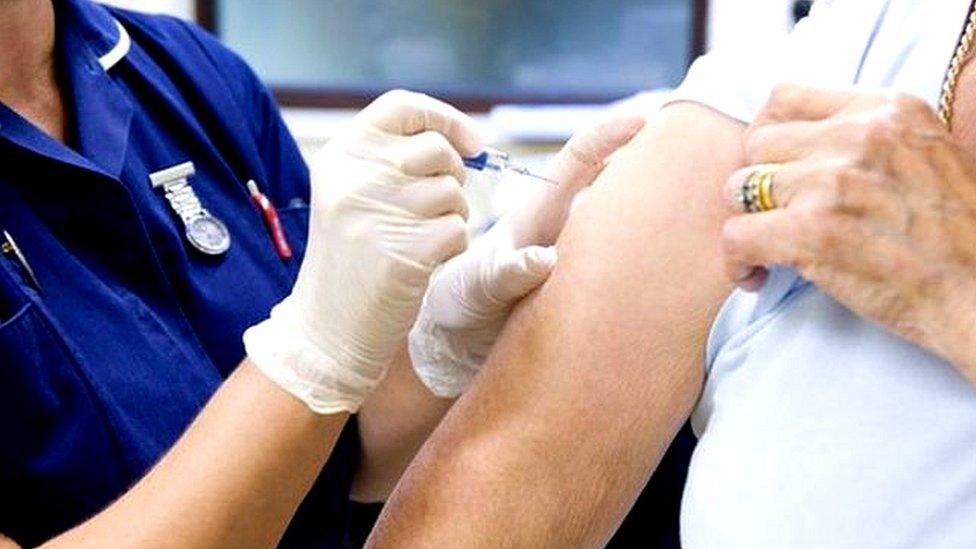
Over 55s and carers looking after people who are shielding will all be offered the flu vaccination
Flu jabs extended to more groups
Scotland's chief medical officer Gregor Smith told the briefing that the Scottish government would also extend the number of people eligible for the seasonal flu vaccination this year.
From the autumn, it will be available to social care workers who provide direct care to household members of individuals who are shielding and also to all those who are 55 and over who are not already eligible.
The government will look to vaccinate those aged 50 to 54 if vaccine supplies allow.
The expansion aims to ensure groups most at risk do not contract flu and Covid-19 at the same time.
The scheme already provides the vaccine to people aged over 65, pregnant women, those with underlying health conditions, primary school children, health workers and young and unpaid carers.
- Published7 August 2020
